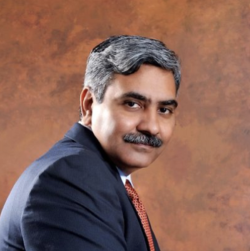Developing capacities for bottom-up AI in the Global South: What role for the international community?
DiploFoundation/Permanent Mission of Kenya/Microsoft/IT for Change
Session 423
Used responsibly, AI has the potential to turbocharge progress in support of the SDGs and drive significant economic growth and opportunities. But a significant AI divide persists, with many underserved communities facing challenges in developing, deploying and adopting AI technologies, especially in the Global South. These challenges relate to the availability of digital infrastructure, capacities to leverage data and knowledge, AI-skilled workforces, and enabling policy environments, among others.
Bridging this divide requires targeted and comprehensive capacity development efforts that prioritise the development of long-term knowledge and awareness, and empower countries and communities to drive their own AI development. The international community includes many actors (donor agencies, development banks, international organisations, companies, think tanks) which could support AI diffusion efforts in the Global South and empower countries and communities to leverage AI solutions that respond to their realities, priorities and needs.
This session will take the form of a scenario-based exercise where participants will propose a blueprint for a national AI capacity development, detailing how a fictional country can accelerate AI adoption and diffusion by leveraging internal resources and forms of international support.
After an introduction to set the context, participants will be presented with a brief describing the particular circumstances of the fictional country. This will be followed by a moderated brainstorming session in which everyone – panellists and session participants – will contribute ideas for the blueprint. This blueprint will detail concrete measures to build capacities at a national and local/community level to enable the development of bottom-up AI.
At the end of the session, participants will be able to walk away with a blueprint for a national AI capacity development plan, that could then be adapted to the specific conditions of real countries.
Session plan
10:00 – 10:10 | Setting the context
- Challenges faced by countries in the Global South when it comes to developing and deploying bottom-up AI.
- Examples and/or suggestions of ways in which actors in the international community (could) contribute to AI capacity development efforts.
10:10 – 10:45 | Building a blueprint for national AI capacity development
- Scenario presentation (5 min).
- Handouts will be made available to session participants
- Brainstorming dialogue (25 min)
- Wrap-up (5 mins).
- Summarise key blueprint elements.




-
 C2. Information and communication infrastructure
C2. Information and communication infrastructure
-
 C3. Access to information and knowledge
C3. Access to information and knowledge
-
 C4. Capacity building
C4. Capacity building
-
 C10. Ethical dimensions of the Information Society
C10. Ethical dimensions of the Information Society
-
 Goal 8: Promote inclusive and sustainable economic growth, employment and decent work for all
Goal 8: Promote inclusive and sustainable economic growth, employment and decent work for all
-
 Goal 9: Build resilient infrastructure, promote sustainable industrialization and foster innovation
Goal 9: Build resilient infrastructure, promote sustainable industrialization and foster innovation
-
 Goal 10: Reduce inequality within and among countries
Goal 10: Reduce inequality within and among countries